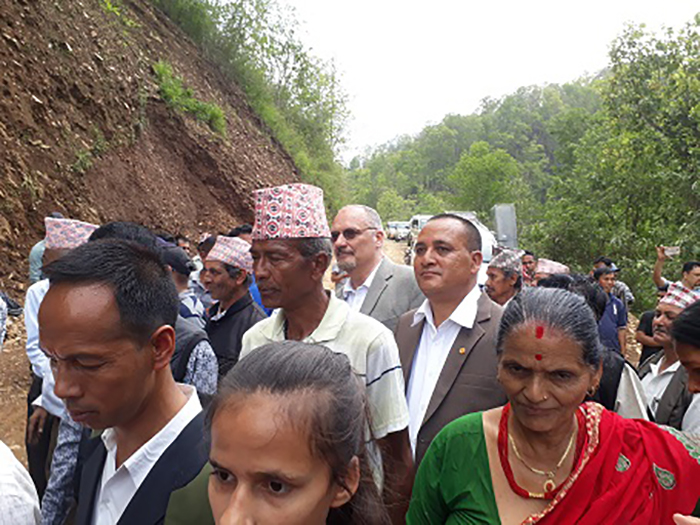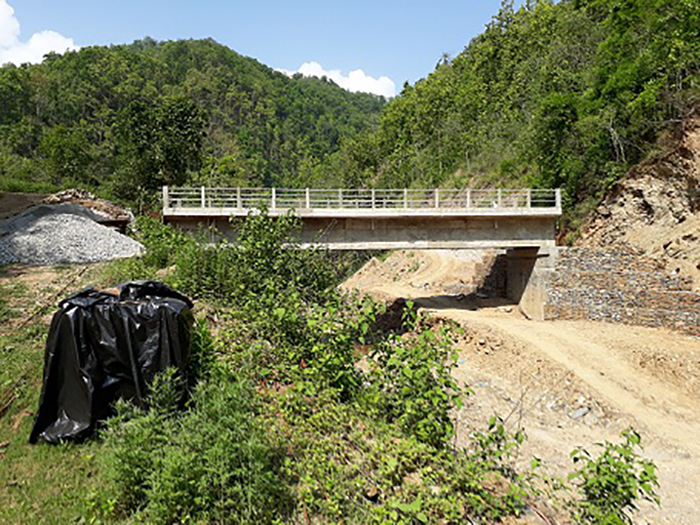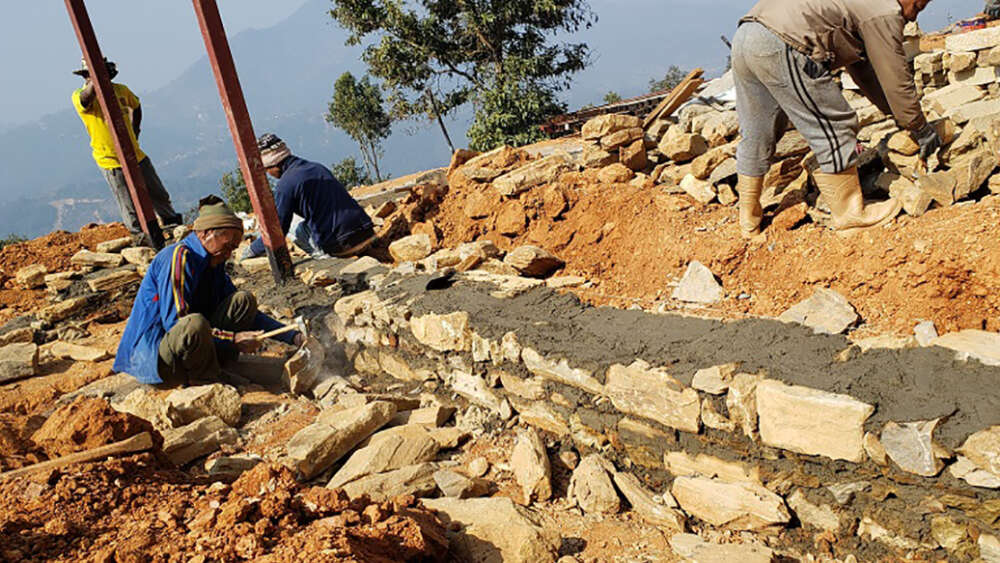In a country where Christians are about one per cent of the population, Man Bahadur Pariyar is building a Bible college with no official denominational backing or guaranteed financial support.
Foundations and fences for the independent Revival Bible College have been erected in a remote, mountainous village in the Bakrang area of Nepal, between capital Kathmandu and tourist mecca Pokhara (a launchpad to the nearby Himalayas).
“We are working by faith and praying for our needs.” – Man Bahadur Pariyar
“My dream for the Bible college is to prepare Christ-centred, Spirit-empowered servant leaders for national revival in Nepal,” Pariyar explains to Eternity about the ambitious project, estimated to cost about $AU340,000. Having received government approval and initial investment from overseas supporters, Pariyar hopes to secure “a mission partner with the same spirit and desire to fulfil God’s plan in Nepal to serve him and glorify him”.
“We are working by faith and praying for our needs. When we will have funds, then it will be completed within one year,” says Pariyar, who previously has helped build and raise funds for other church buildings across Nepal.
“We will teach people, make them know … that we children of Christ can make a difference in our community and this nation. My prayer is for equipping servant leaders for next generations, building them up so they can reproduce more, and we will have plenty of workers [for the] harvest.”
Revival Bible College is being constructed near the heart of his country and, according to Pariyar, it just might be the first Christian training centre of its kind outside of a major city in Nepal. Quite the achievement, particularly when walking the legal tightrope of it being a crime to do anything that might lead to converting “a person of one religion to another religion or disturb the religion of other people” (according to the Constitution of Nepal, Article 26: Right to freedom of religion).
While every Nepali person is able to “profess, practice and preserve their own religion”, this majority Hindu nation (about 81 per cent of the almost 30 million populace) is hard ground for expressions of Christianity.
“Hindu people are in power, at decision-making levels and every government level,” says Pariyar, a Nepali pastor trained in New York City, who has an entrepreneurial gift. “They talk and write nice, sweet and better but, in practice, they control, and they do have fear … so they don’t want Christians to move [around] and do Christian religious activities.”
“[But] being a Christian, obeying God, witnessing to the world and coming to his Lordship is always much challenging for a Christian anywhere in the world.”
Wherever you put Pariyar in the world, he’d still be a force of nature, serving others in the name of Jesus. He’s the sort of Christian leader so inspired by the gospel that his whole life is devoted to it, sharing with gusto his “testimony, witness and lifestyle”.

Man Bahadur Pariyar (centre right, without hat).
Having turned their Kathmandu home into an orphanage more than ten years ago with his wife Kamala, he also created a handicraft business that gave widows skills which they could use to seek employment. Pariyar’s focus on orphans and widows flowed directly from reading James 1:27: “Religion that God our Father accepts as pure and faultless is this: to look after orphans and widows in their distress and to keep oneself from being polluted by the world.”
Caring for such vulnerable people is necessary in Nepal, one of the world’s poorest and least developed countries. Almost 25 per cent of people live below the poverty line and unemployment is more than 45 per cent.
The coronavirus infection curve has significantly flattened since its peak in October 2020, of more than 3000 new daily cases, but Pariyar says wide-reaching damage was done.
“People were living in stress and fear, got depression and gone through suicide; people lost their hope … in lockdown. Many people lost their jobs, and no food; getting better now. COVID-19 pandemic not only killed people, but also lost their family, friends, and jobs.”
Pariyar says he and other Christian brothers and sisters in Nepal prayed and waited on God’s timing to begin the building project – which has provided jobs already to locals in his village. He was also able to do this several years ago, when he managed the construction of a vital bridge across a nearby waterway that, during monsoon season, would flood and cut off his village. “The Bridge Project is well known as a Christian bridge in this Hindu community, our district and in Nepal,” Pariyar says about this prominent example of Christian support for Nepali communities.

The impressive “Christian Bridge” near Man’s village, in central Nepal.
The village aided by the bridge, Shahid Lakhan, is a stunning spot nestled on a terraced Nepali hillside. But natural beauty is not the only benefit afforded by this strategic location for Revival Bible College.
“It is a rural village; food and environment will be fresh, healthy (spiritually, mentally and physically), and can create jobs for local peoples in rural areas,” says Pariyar.
“Almost all Bible colleges are situated in cities, so we want to minimise cost so leaders from remote and rural areas can afford and manage their time, even when involved in their ministries.
“We do have easy access from every part of Nepal. It has helicopter access too for emergency rescues, so it is accessible in many ways.
“We like to give all visitors and students spiritual and geographical taste from our creator – [it can be like] a ‘Shangri-La’.”
Revival Bible College wants to offer “short-term faith foundation” opportunities – such as one, three and six month courses – as well as two and three year options. Pariyar says subjects are still being finalised, but he intends to deliver a swathe, such as Hermeneutics, Systematic Theology, Worship Leadership, Pastoral Ministry, Computer Skills, World Religions, Old Testament Literature and a New Testament Survey.
“If people see Jesus in us, they experience his love through us …” – Man Bahadur Pariyar
Pariyar is seeking input and guidance for these subjects at the moment, as well as putting the call out to students, and refining the management and operation costs of the Bible college. Not one to do anything but dream big and go for it in the power of the Spirit, Pariyar and his close associates also want Revival Bible College to propel the church-planting network they have established.
“When Jesus lives in us, when he is with us, the world can see, feel and experience differences. He guides us, leads us and gives directions towards victory, and we can be revived and the church will be strong in faith foundation.”
“Within five years, a new church can self-exist and after five years, it will reproduce a new fellowship and new church; and then that mother church can plant a new fellowship/church after every two years too,” says Pariyar of his church-planting goals.
“If people see Jesus in us, they experience his love through us and they taste salt in our witness. And as we are working servant leaders, we can plant 1746 churches within 30 years.
“I have a strong desire in my heart that I am here for this beautiful, precious reason.”



